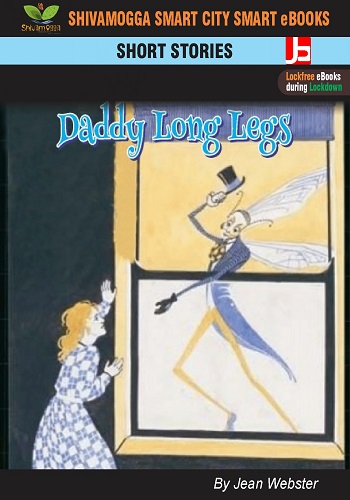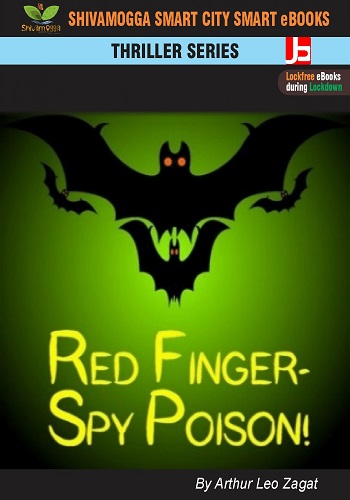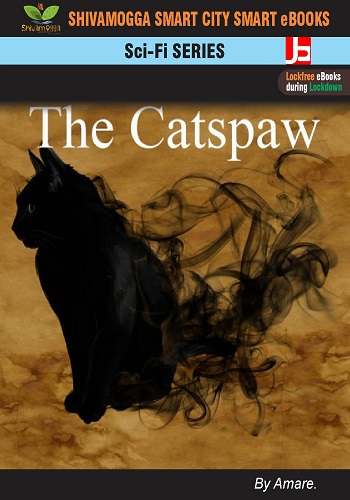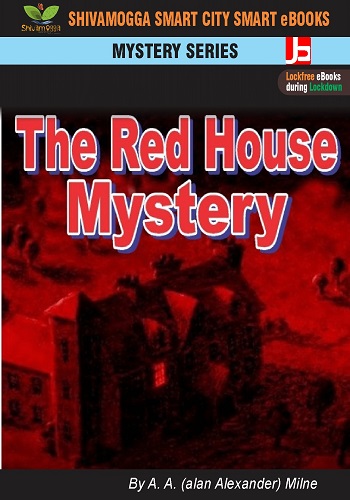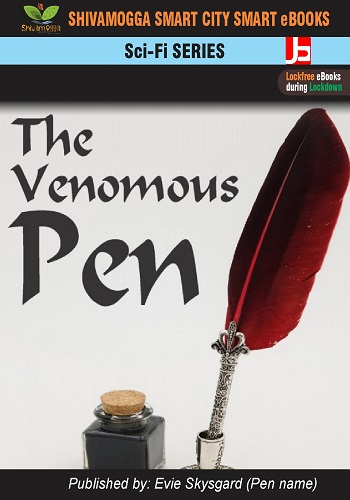-
 A collection of rare ghosts and horror stories by the brothers of one of the finest writers of the genre, E. F. Benson. The Benson brothers – Arthur Christopher, Edward Frederic and Robert Hugh – were one of the most extraordinary and prolific literary families, between them writing more than 150 books. Arthur alone left four million words of diary, although his most lasting legacy is the words to Elgar’s Land of Hope and Glory , while Fred is acknowledged as one of the finest writers of Edwardian supernatural fiction: the name E. F. Benson is mentioned in the same breath as other greats such as M. R. James and H. R. Wakefield. In fact, all three brothers wrote ghost stories, although the work of Arthur and Hugh in this field has long been overshadowed by their brother’s success. Now the best supernatural tales of A. C. and R. H. Benson have been gathered into one volume by anthologist Hugh Lamb, whose introduction examines the lives and writings of these two complex and fascinating men.
A collection of rare ghosts and horror stories by the brothers of one of the finest writers of the genre, E. F. Benson. The Benson brothers – Arthur Christopher, Edward Frederic and Robert Hugh – were one of the most extraordinary and prolific literary families, between them writing more than 150 books. Arthur alone left four million words of diary, although his most lasting legacy is the words to Elgar’s Land of Hope and Glory , while Fred is acknowledged as one of the finest writers of Edwardian supernatural fiction: the name E. F. Benson is mentioned in the same breath as other greats such as M. R. James and H. R. Wakefield. In fact, all three brothers wrote ghost stories, although the work of Arthur and Hugh in this field has long been overshadowed by their brother’s success. Now the best supernatural tales of A. C. and R. H. Benson have been gathered into one volume by anthologist Hugh Lamb, whose introduction examines the lives and writings of these two complex and fascinating men. -
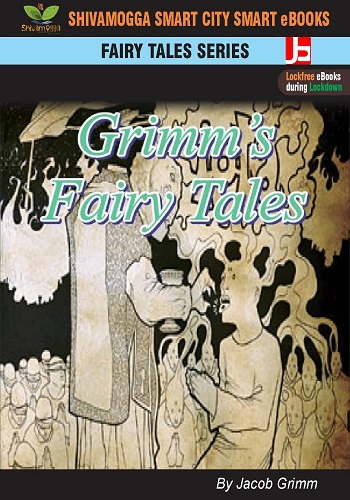 Grimm's Fairy Tales is the definitive collection of fairy tales in the English language. This collection includes favorites like Rapunzel, The Frog Prince, The Twelve Dancing Princesses, Hansel and Gretel, and Rumplestiltzkin. Lesser known stories like The Golden Bird and The Goose-Girl are sure to delight and enchant children of all ages.
Grimm's Fairy Tales is the definitive collection of fairy tales in the English language. This collection includes favorites like Rapunzel, The Frog Prince, The Twelve Dancing Princesses, Hansel and Gretel, and Rumplestiltzkin. Lesser known stories like The Golden Bird and The Goose-Girl are sure to delight and enchant children of all ages. -
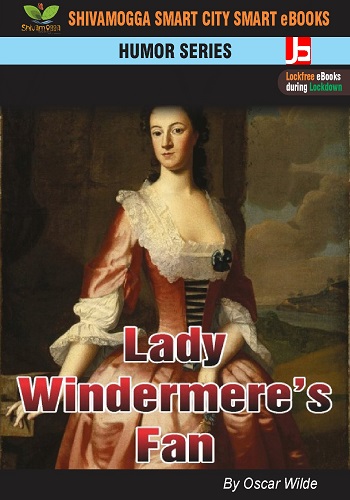 Lady Windermere's Fan, A Play About a Good Woman is a four-act comedy by Oscar Wilde, at the St James's Theatre in London. The story concerns Lady Windermere, who suspects that her husband is having an affair with another woman. She confronts him with it but although he denies it, he invites the other woman, Mrs Erlynne, to his wife's birthday ball. Angered by her husband's supposed unfaithfulness, Lady Windermere decides to leave her husband for another lover. After discovering what has transpired, Mrs Erlynne follows Lady Windermere and attempts to persuade her to return to her husband and in the course of this, Mrs Erlynne is discovered in a compromising position. It is then revealed Mrs Erlynne is Lady Windermere's mother, who abandoned her family twenty years before the time the play is set. Mrs Erlynne sacrifices herself and her reputation to save her daughter's marriage. Act I The play opens in the morning room of the Windermeres' residence in London. It is tea time and Lady Windermere--who is preparing for her coming of age birthday ball that evening--has a visit from a friend, Lord Darlington. She shows off her new fan: a present from her husband. She explains to Lord Darlington that she is upset over the compliments he continues to pay to her, revealing that she is a Puritan and has very particular views about what is acceptable in society. The Duchess of Berwick calls and Lord Darlington leaves shortly thereafter. The Duchess informs Lady Windermere that her husband may be betraying her marriage by making repeated visits to another woman, a Mrs Erlynne, and possibly giving her large sums of money. These rumours have been gossip among London society for quite a while, though seemingly this is the first Lady Windermere has heard about it. Following the departure of the Duchess, Lady Windermere decides to check her husband's bank book. She finds the book in a desk and sees that nothing appears amiss, though on returning she discovers a second bank book: one with a lock. After prying the lock open, she finds it lists large sums of money given to Mrs Erlynne. At this point, Lord Windermere enters and she confronts him. Though he cannot deny that he has had dealings with Mrs Erlynne, he states that he is not betraying Lady Windermere. He requests that she send Mrs Erlynne an invitation to her birthday ball that evening to help her back into society. When Lady Windermere refuses, he writes out an invitation himself. Lady Windermere makes clear her intention to cause a scene if Mrs Erlynne appears, to which Lord Windermere responds that it would be in her best interest not to do so. Lady Windermere leaves in disgust to prepare for the party, and Lord Windermere reveals in soliloquy that he is protecting Mrs Erlynne's true identity to save his wife extreme humiliation. What shall I do? I dare not tell her who this woman really is. The shame would kill her. -- Lord Windermere
Lady Windermere's Fan, A Play About a Good Woman is a four-act comedy by Oscar Wilde, at the St James's Theatre in London. The story concerns Lady Windermere, who suspects that her husband is having an affair with another woman. She confronts him with it but although he denies it, he invites the other woman, Mrs Erlynne, to his wife's birthday ball. Angered by her husband's supposed unfaithfulness, Lady Windermere decides to leave her husband for another lover. After discovering what has transpired, Mrs Erlynne follows Lady Windermere and attempts to persuade her to return to her husband and in the course of this, Mrs Erlynne is discovered in a compromising position. It is then revealed Mrs Erlynne is Lady Windermere's mother, who abandoned her family twenty years before the time the play is set. Mrs Erlynne sacrifices herself and her reputation to save her daughter's marriage. Act I The play opens in the morning room of the Windermeres' residence in London. It is tea time and Lady Windermere--who is preparing for her coming of age birthday ball that evening--has a visit from a friend, Lord Darlington. She shows off her new fan: a present from her husband. She explains to Lord Darlington that she is upset over the compliments he continues to pay to her, revealing that she is a Puritan and has very particular views about what is acceptable in society. The Duchess of Berwick calls and Lord Darlington leaves shortly thereafter. The Duchess informs Lady Windermere that her husband may be betraying her marriage by making repeated visits to another woman, a Mrs Erlynne, and possibly giving her large sums of money. These rumours have been gossip among London society for quite a while, though seemingly this is the first Lady Windermere has heard about it. Following the departure of the Duchess, Lady Windermere decides to check her husband's bank book. She finds the book in a desk and sees that nothing appears amiss, though on returning she discovers a second bank book: one with a lock. After prying the lock open, she finds it lists large sums of money given to Mrs Erlynne. At this point, Lord Windermere enters and she confronts him. Though he cannot deny that he has had dealings with Mrs Erlynne, he states that he is not betraying Lady Windermere. He requests that she send Mrs Erlynne an invitation to her birthday ball that evening to help her back into society. When Lady Windermere refuses, he writes out an invitation himself. Lady Windermere makes clear her intention to cause a scene if Mrs Erlynne appears, to which Lord Windermere responds that it would be in her best interest not to do so. Lady Windermere leaves in disgust to prepare for the party, and Lord Windermere reveals in soliloquy that he is protecting Mrs Erlynne's true identity to save his wife extreme humiliation. What shall I do? I dare not tell her who this woman really is. The shame would kill her. -- Lord Windermere -
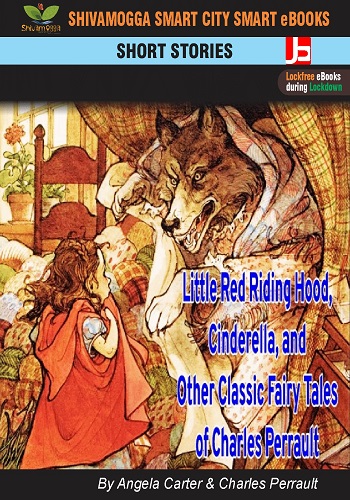 Little Red Riding Hood. Cinderella. Sleeping Beauty. Bluebeard. The Fairies. Many classic fairy tale characters might not have survived into the present were it not for Charles Perrault, a seventeenth-century French civil servant who rescued them from the oral tradition and committed them to paper. Three centuries later, Angela Carter, widely regarded as one of England’s most imaginative writers, adapted them for contemporary readers. The result is a cornucopia of fantastic characters and timeless adventures, stylishly retold by a modern literary visionary.
Little Red Riding Hood. Cinderella. Sleeping Beauty. Bluebeard. The Fairies. Many classic fairy tale characters might not have survived into the present were it not for Charles Perrault, a seventeenth-century French civil servant who rescued them from the oral tradition and committed them to paper. Three centuries later, Angela Carter, widely regarded as one of England’s most imaginative writers, adapted them for contemporary readers. The result is a cornucopia of fantastic characters and timeless adventures, stylishly retold by a modern literary visionary. -
 The story begins with: On a glass mountain grew a tree with golden apples. An apple would let the picker into the golden castle where an enchanted princess lived. Many knights had tried and failed, so that many bodies lay about the mountain. A knight in golden armor tried. One day, he made it halfway up and calmly went down again. The second day, he tried for the top, and was climbing steadily when an eagle attacked him. He and his horse fell to their deaths. A schoolboy killed a lynx and climbed with its claws attached to his feet and hands. Weary, he rested on the slope. The eagle thought he was carrion and flew down to eat him. The boy grabbed it, and it, trying to shake him off, carried him the rest of the way. He cut off its feet and fell into the apple tree. The peels of the apples cured his wounds, and he picked more, to let him into the castle. He married the princess. The blood of the eagle restored to life everyone who had died trying to climb the mountain.
The story begins with: On a glass mountain grew a tree with golden apples. An apple would let the picker into the golden castle where an enchanted princess lived. Many knights had tried and failed, so that many bodies lay about the mountain. A knight in golden armor tried. One day, he made it halfway up and calmly went down again. The second day, he tried for the top, and was climbing steadily when an eagle attacked him. He and his horse fell to their deaths. A schoolboy killed a lynx and climbed with its claws attached to his feet and hands. Weary, he rested on the slope. The eagle thought he was carrion and flew down to eat him. The boy grabbed it, and it, trying to shake him off, carried him the rest of the way. He cut off its feet and fell into the apple tree. The peels of the apples cured his wounds, and he picked more, to let him into the castle. He married the princess. The blood of the eagle restored to life everyone who had died trying to climb the mountain. -
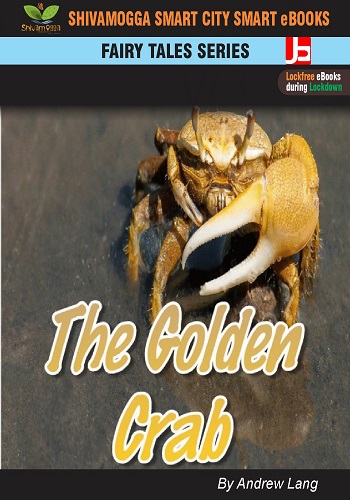 The Golden Crab' is a Greek fairy-tale that tells us a story of fisherman who one day cathces a golden crab together with fish. The crab is being taken to the fisherman's house where he demands to be fed. So fisherman and his wife feed the creature. But then he demands to marry the fisherman's young daughter… what will happen next?
The Golden Crab' is a Greek fairy-tale that tells us a story of fisherman who one day cathces a golden crab together with fish. The crab is being taken to the fisherman's house where he demands to be fed. So fisherman and his wife feed the creature. But then he demands to marry the fisherman's young daughter… what will happen next? -
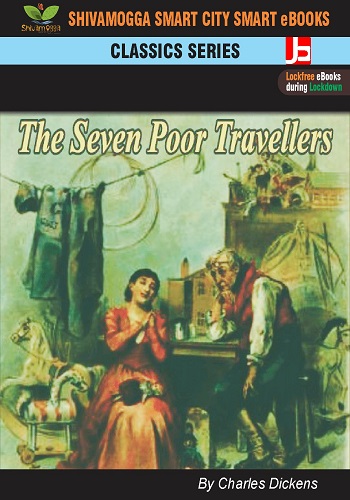 A short and inspirational work by Charles Dickens written as a Christmas story. Outshined by Dickens much more well known Christmas story, this short story has received scant notice. Yet I found it most delightful and comforting and can heartily recommend it. Written in the first person, Dickens tell of being a "poor traveller," and discovering a humble inn during his travels. Set up as a charitable hostel by a gentlemen deceased over a century previously, the inn offers to "six poor traveller's," true in heart, free lodging for one night plus enough money to purchase a simple meal. After satisfying himself of the bona fides of this charitable work, the "seventh poor traveller," as Dickens refers to the narrator, determines to contribute his own gift to his fellow "traveller's," it being Christmas Eve. Securing a sumptuous meal for the holy occasion, and preparing his own secret recipe of wassail, he shares a most satisfying Christmas Eve meal with his fellows, topping off the night with a personal story that befits a Christ-like life of humble service to the meanest among us. The story told, and following activities, serve to illustrate well the concept Dickens wishes to drive home, which is that at best we are all "poor traveller's" together in this life, and make the best of it all by sharing with a true heart whatever good and honest fare comes our way. Without the burden of judging harshly those whom we encounter who seem beneath our station, true happiness may be achieved before we, too, depart this veil of tears.
A short and inspirational work by Charles Dickens written as a Christmas story. Outshined by Dickens much more well known Christmas story, this short story has received scant notice. Yet I found it most delightful and comforting and can heartily recommend it. Written in the first person, Dickens tell of being a "poor traveller," and discovering a humble inn during his travels. Set up as a charitable hostel by a gentlemen deceased over a century previously, the inn offers to "six poor traveller's," true in heart, free lodging for one night plus enough money to purchase a simple meal. After satisfying himself of the bona fides of this charitable work, the "seventh poor traveller," as Dickens refers to the narrator, determines to contribute his own gift to his fellow "traveller's," it being Christmas Eve. Securing a sumptuous meal for the holy occasion, and preparing his own secret recipe of wassail, he shares a most satisfying Christmas Eve meal with his fellows, topping off the night with a personal story that befits a Christ-like life of humble service to the meanest among us. The story told, and following activities, serve to illustrate well the concept Dickens wishes to drive home, which is that at best we are all "poor traveller's" together in this life, and make the best of it all by sharing with a true heart whatever good and honest fare comes our way. Without the burden of judging harshly those whom we encounter who seem beneath our station, true happiness may be achieved before we, too, depart this veil of tears. -
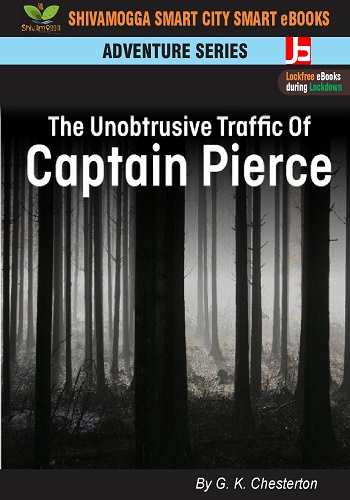 In the scriptures and the chronicles of the League of the Long Bow, or fellowship of foolish persons doing impossible things, it is recorded that Owen Hood, the lawyer, and his friend Crane, the retired Colonel, were partaking one afternoon of a sort of picnic on the river-island that had been the first scene of a certain romantic incident in the life of the former, the burden of reading about which has fallen upon the readers in other days. Suffice it to say that the island had been devoted by Mr. Hood to his hobby of angling, and that the meal then in progress was a somewhat early interruption of the same leisurely pursuit. The two old cronies had a third companion, who, though considerably younger, was not only a companion but a friend. He was a light-haired, lively young man, with rather a wild eye, known by the name of Pierce, whose wedding to the daughter of the innkeeper of the Blue Boar the others had only recently attended.
In the scriptures and the chronicles of the League of the Long Bow, or fellowship of foolish persons doing impossible things, it is recorded that Owen Hood, the lawyer, and his friend Crane, the retired Colonel, were partaking one afternoon of a sort of picnic on the river-island that had been the first scene of a certain romantic incident in the life of the former, the burden of reading about which has fallen upon the readers in other days. Suffice it to say that the island had been devoted by Mr. Hood to his hobby of angling, and that the meal then in progress was a somewhat early interruption of the same leisurely pursuit. The two old cronies had a third companion, who, though considerably younger, was not only a companion but a friend. He was a light-haired, lively young man, with rather a wild eye, known by the name of Pierce, whose wedding to the daughter of the innkeeper of the Blue Boar the others had only recently attended.


